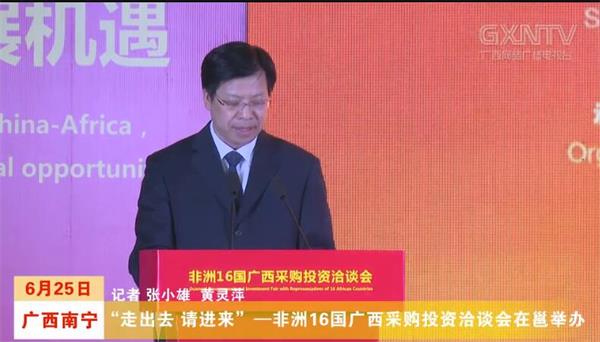Jan. 28 2020Ethiopian leader’s mettle is yet to be tested as the country tries to attract private sector investments to sustain its economic growth, reports Gavin du Venage from Cape Town, South AfricAbiy Ahmed, 43, swept to power in 2018 amid a shak...
Jan. 28 2020
Ethiopian leader’s mettle is yet to be tested as the country tries to attract private sector investments to sustain its economic growth, reports Gavin du Venage from Cape Town, South Afric
Abiy Ahmed, 43, swept to power in 2018 amid a shakeup of the ruling coalition that had governed the country since 1991. He moved quickly to free political prisoners and end the decades-long war with neighbour Eritrea. Mr Ahmed also announced sweeping fiscal reforms and promised to wrench the economy from the grip of the military.
Rewards were quick to come from international investors including the United Arab Emirates, which pledged Dh11 billion in loans to Ethiopia.
“These changes are significant and bold and indicative of a more liberal policy orientation,” says Ronak Gopaldas, director at Signal Risk, a market intelligence firm in Johannesburg. These changes have won Mr Ahmed the Nobel Peace prize and comparisons to Mahatma Gandhi, the father of Indian independence.
The key message from the government is that the private sector is going to have a bigger role in the economy, as opposed to the last 15 years
Zemedeneh Negatu
“Such a comparison may be somewhat premature,” says Mr Gopaldas, who notes that Mr Ahmed has yet to realise some of his pledges, and faces a difficult time winning over entrenched interests in the government.
Daunting challenges– both political and fiscal – lie ahead. Ethiopia is one of the fastest growing economies worldwide, registering a growth rate of more than 10 per cent for some years now. However, the World Bank in January cut its forecast for Ethiopia’s economic growth in the 2020 fiscal year to 6.3 per cent.
This is well below the projection of the National Bank of Ethiopia, which forecast that gross domestic product growth would accelerate to 10.8 per cent for the fiscal year ending in July.
Meanwhile, external debt has reached $27bn (Dh99bn), just over a quarter of the Ethiopian gross domestic product of $100bn. At the same time, Ethiopia’s economic growth is mainly driven by state investment, much of it funded by debt.
Exports, the main source of foreign exchange, reached just over $7bn in 2019, similar to the levels in 2018 and just marginally higher than $6.2bn in 2017, according to World Bank data. Demand for its main commodities such as coffee, tea and other agricultural produce have been flat amid a worldwide glut in supply. This means there is little hope for an export-driven reversal of debt anytime soon.
READ MORE
Poverty on rise in sub-Saharan Africa, Latin America and West Asia, UN report says
Egypt, Ethiopia and Sudan make progress but delay deadline in dam row
At the same time, the high growth rate that Ethiopia has enjoyed is not sustainable if it is mainly state driven, experts say.
“The public investment model has been accompanied by the rapid accumulation of debt, and of foreign exchange shortages, which has crowded out the private sector,” says Jules Leichter, the resident representative of the IMF in Ethiopia.
While the money spent has improved overall services such as health and education among others, the time has come to transition to private sector funded growth. This would require a new policy framework designed to attract business to the country.
“We need these to boost private sector productivity, to achieve sustainable growth that Ethiopia is moving towards,” says Leichter.
Fortunately, the country’s current leadership understands this. “Businesses that operate in Ethiopia have noted a number of constraints that make it very, very difficult for them to do business,” Eyob Tekalign Tolina, head of financial development and also a minister in Mr Ahmed’s cabinet, told an investor conference hosted by the UN Economic Commission for Africa, held in Addis Ababa last September.
“Things like access to foreign exchange and electricity, corruption, government inefficiency, poor internet. These are [some of] the factors that have dampened private business in spite of the country’s potential.”
The government is implementing a number of reforms with the assistance of agencies such as the IMF and World Bank to overcome these barriers to private capital, Mr Tolina said.
For foreign investors, the real test will be Ethiopia’s commitment to a pledge that Mr Ahmed made in 2018 to reform and sell off various state-owned enterprises.
Fortunately for Mr Ahmed, investors so far like what they see. The country is in the process of selling off major state assets such the sugar industry that was mostly controlled by the military. Also on the block is the world’s largest mobile phone monopoly, as well as railroads and other assets.
For 12 years I have not seen my father or mother. For the first time I have hope that I will someday return and maybe live as a businessman, not just a refugee
Kebedi Tefferi
As a result of the government’s continued adherence to reforms, the IMF extended a $2.9bn loan in December to help balance out foreign exchange shortages.
“A lot of reforms are already in the pipeline – that's why this support is coming through,” says Zemedeneh Negatu, Global Chairman of the Fairfax Africa Fund. Government reforms would pave the path for private investment.
“The key message from the government is that the private sector is going to have a bigger role in the economy, as opposed to the last 15 years.”
An influx of private capital will lead to other positive measures, including the opening of a stock market. “This will be a big, big game changer, because there are many companies in Ethiopia that will benefit from a private capital market,” says Mr Negatu.
Given the size of Ethiopia’s economy – one of just three in Africa to cross the $100bn threshold – a stock market could grow to formidable size and possibly rival the current largest capital market in Africa, the Johannesburg Stock Exchange.
Mr Ahmed, meanwhile, is doubling down on political reforms as well. In January a date for elections was set, with a national vote scheduled for August 16. This will be the first real political test of his administration, and the first too when many political exiles and dissidents can take part.
He has also moved to settle a long running dispute with Egypt and Sudan over the $4bn Grand Renaissance Dam now being completed on the upper stage of the Nile. Downstream users fear that Ethiopia will restrict the amount of water and prioritise its own needs. If unresolved, the dispute could lead to war between three of Africa’s largest militaries.
However, in January, the three countries signed an accord in Washington, to work together to ensure the construction of the dam – especially the crucial filling stage that will take at least six years – will cause as little disruption as possible.
The future for Ethiopia may be as bright as optimists hope if Mr Ahmed manages to win the election, complete a full term in office, and introduce fiscal reforms.
“For the first time I have been thinking of going home,” says Kebedi Tefferi, an Ethiopian living in Cape Town as a refugee, and who ekes out a living selling used clothing in the city centre. He fled the country when he was told police were looking for him after he penned down blog posts that criticized the government and made his way overland to South Africa.
“For 12 years I have not seen my father or mother. For the first time I have hope that I will someday return and maybe live as a businessman, not just a refugee.”
Original Source: www.thenational.ae/business/economy/ethiopia-s-reformist-leader-abiy-ahmed-woos-private-sector-investors-to-fuel-economic-growth-1.970398



